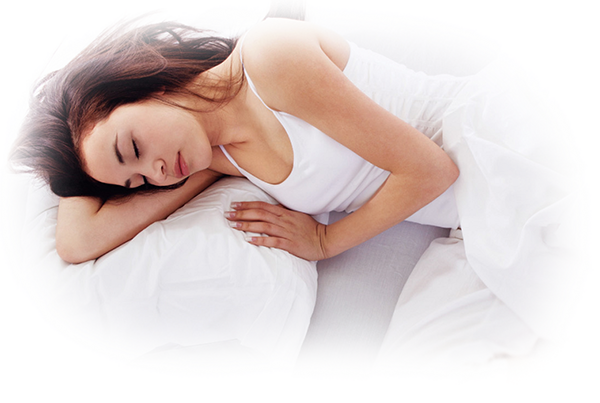
S for Sleep Yourself Well
What if you could wake up every morning feeling refreshed, focused, and excited to move through your day?
While an honored part of many cultural practices throughout history, sleep has somehow lost value in today’s hectic society. We feel compelled to do but forget that we need to rest! As energy constantly bombards us in a variety of forms – light, sound, movement, and information – our bodies’ natural rhythms are disrupted. Our ability to achieve both the quantity and quality of sleep we need is compromised and we are left feeling totally exhausted. We may reach for stimulants during the day to keep us going but then depend on relaxants to help us wind down at night. This creates a vicious cycle – and an unhealthy dependence – that may lead us to gain weight, lose mental clarity, feel emotionally drained, and eventually diminish our general health. Fortunately, there are steps we can take to improve our quality of sleep and give ourselves the deserved rest we need to function.
Several factors contribute to how well we sleep, including what and when we eat and drink (nutrition), where we sleep (environment), and our energy output during the day (daily rhythms).
So first lets consider NUTRITION
- Eat a variety of whole foods, greens , veggies and fruits. Basically anything that grows on the earth and limit sugar and caffeine intake.
- Experiment with light evening meals and crowd out late-night snacking with journaling, reading, or connecting with a loved one. Digestion requires energy – when a large meal is consumed at night, it interferes with the body’s ability to rest.
- Avoid late-night beverages. Ingesting liquids right before bed often leads to a dreaded middle-of-the-night bathroom run, which disturbs the sleep cycle and therefore hinders sleep quality
Refresh your bedroom. (Your Environment )
View your bedroom with a fresh pair of eyes. What feelings does the room evoke? Is it calm? disorganized? cluttered? Does it promote a restful night’s sleep? .
Here are a few ideas:
- Choose darker curtains or try a sleep mask.
- Remove electronics.
- Buy a plant.
- Rearrange your furniture.
- Clear clutter.
Lastly lets consider our DAILY RHYTHMS
Our bodies take cues from our actions. What we eat, when we eat it, what we do, and when we do it are all part of an intricate system of signals that our brain uses to regulate all it needs to do for us to thrive and survive. Honoring these rhythms is vital to our well-being.
Here are a few more things to consider when it comes to feeling well-rested:
- Create a bedtime routine. Going to bed and waking up at a similar time each day can help the body get into a healthy rhythm.
- Experiment with restorative evening activities. Things like meditation, yoga, or being intimate with your significant other may all be considered relaxing activities to help prepare you for bedtime.
- Track your sleep habits. Sleep trackers are wearable devices that typically monitor heart rate, breathing patterns, and movement while you sleep. Exploring your sleep habits can help identify any adjustments to your routine or sleeping environment that are needed.
- Reduce “busy brain” at night. You may find it helpful to keep a journal and pen near your bed. If you think of something, jot it down, knowing that it won’t be forgotten and can be considered in the morning.
The missing link to your healthy lifestyle may just be a good night’s sleep. Taking steps toward improving your sleep is essential for optimal health.
Sweet dreams!
